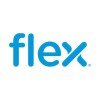Financial Reporting Analyst
Financial Reporting Analyst Interview Questions and Answers

Asked in State Street Corporation

Q. How will you analyze the client financials?
I will analyze client financials by reviewing income statements, balance sheets, cash flow statements, and conducting ratio analysis.
Review income statements to assess revenue and expenses
Analyze balance sheets to understand assets, liabilities, and equity
Examine cash flow statements to evaluate cash inflows and outflows
Conduct ratio analysis to assess liquidity, profitability, and solvency
Compare financials to industry benchmarks for performance evaluation

Asked in State Street Corporation

Q. What are Financial Statements? Why balanve sheet?
Financial statements are reports that show the financial performance of a company over a specific period of time.
Financial statements include the balance sheet, income statement, and cash flow statement.
The balance sheet shows a company's assets, liabilities, and equity at a specific point in time.
The income statement shows a company's revenue, expenses, and net income over a specific period of time.
The cash flow statement shows the inflow and outflow of cash over a specific ...read more

Asked in MagicPin

Q. How well can you handle pressure?
I thrive under pressure and use it as motivation to perform at my best.
I have experience working in fast-paced environments where deadlines were tight
I am able to prioritize tasks effectively to manage stress and meet goals
I remain calm and focused under pressure, allowing me to make sound decisions
I have successfully handled high-pressure situations in the past, such as during quarterly financial reporting deadlines

Asked in Genpact

Q. What is the difference between amortization and depreciation?
Amortization is the process of spreading the cost of an intangible asset over its useful life, while depreciation is the process of spreading the cost of a tangible asset over its useful life.
Amortization is used for intangible assets such as patents, copyrights, and trademarks.
Depreciation is used for tangible assets such as buildings, machinery, and vehicles.
Amortization expense is usually a straight-line method, while depreciation expense can be calculated using various me...read more

Asked in Apex Group

Q. What is private equity?
Private equity refers to investments made in private companies that are not publicly traded on a stock exchange.
Private equity firms raise funds from investors and use that capital to acquire companies or make investments in private companies.
They typically aim to improve the performance of the companies they invest in and then sell them for a profit.
Private equity investments can be in a variety of industries, such as healthcare, technology, and real estate.
Examples of priva...read more

Asked in State Street Corporation

Q. What is the difference between futures and options?
Futures are contracts to buy or sell assets at a future date, while options give the holder the right but not the obligation to buy or sell assets at a set price.
Futures involve an obligation to buy or sell the underlying asset at a specified price and date.
Options give the holder the right, but not the obligation, to buy or sell the underlying asset at a set price within a specified time frame.
Futures are standardized contracts traded on exchanges, while options can be trade...read more
Financial Reporting Analyst Jobs




Asked in State Street Corporation

Q. What is the difference between shares and debentures?
Shares represent ownership in a company while debentures are a type of debt instrument issued by a company.
Shares represent ownership in a company and give the shareholder voting rights and a share in the profits.
Debentures are a type of debt instrument issued by a company and pay a fixed rate of interest to the debenture holder.
Shares are generally considered riskier than debentures as the value of shares can fluctuate greatly based on market conditions.
Debentures are genera...read more

Asked in Citicorp

Q. What is markup?
Markup is the difference between the cost of a product or service and its selling price.
Markup is calculated by subtracting the cost of a product or service from its selling price.
It is usually expressed as a percentage of the cost price.
Markup is used by businesses to determine pricing strategies and profit margins.
For example, if a product costs $50 and is sold for $70, the markup is $20 or 40%.
Share interview questions and help millions of jobseekers 🌟


Asked in ICICI Securities

Q. What are options?
Options are financial instruments that give the holder the right, but not the obligation, to buy or sell an asset at a specified price before or on a specified date.
Options can be call options (the right to buy) or put options (the right to sell).
The specified price at which the asset can be bought or sold is known as the strike price.
The specified date by which the option must be exercised is known as the expiration date.
Options are commonly used in financial markets for hed...read more

Asked in eClerx

Q. What is derivatives
Derivatives are financial instruments whose value is derived from an underlying asset or group of assets.
Derivatives can be used for hedging against risk, speculating on price movements, or gaining exposure to assets without owning them.
Common types of derivatives include options, futures, forwards, and swaps.
Derivatives are often used in financial markets to manage risk or to leverage investment opportunities.
The value of a derivative is based on the performance of the under...read more
Interview Questions of Similar Designations
Interview Experiences of Popular Companies








Reviews
Interviews
Salaries
Users

















